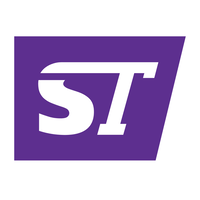
Belta research highlights growing Brazilian market

The annual sector research, which combines a survey of 522 agency sales points and a survey of 4,929 students, builds on the preliminary results which were unveiled at the ST Alphe Brazil conference last month.
In the completed report, Belta said that 73.3 per cent of agencies experienced growth in 2018, compared with the previous year, with 20 per cent citing a decline in business and the remainder stable. The association estimated the total size of the Brazilian outbound market in 2018 at around 365,000 students, which the association said was significant given that it came in a year or economic crisis and political instability.
Across the 522 agency offices – 470 of which were operated by Belta members – there was an average of 192 clients per office, and an average spend of US$8,650 per client; more than half of clients (51 per cent) spent at least US$5,000 on their programme. This led to an average revenue created of US$1.66 million per agency office.
The research revealed that 87 per cent of agencies were offering online counselling, a slightly increased proportion compared with the previous year, although only two-thirds were actually selling online last year.
The student survey, meanwhile, revealed that of those students that went abroad last year, 67.2 per cent booked in person at an agency, an increased share compared with the 2017 survey – highlighting the enduring importance of face-to-face counselling in the Brazilian market. A further 8.9 per cent booked online through an agency, and 14.2 per cent reserved directly with a school.
Of the additional services purchased: 43 per cent booked travel/health insurance through their agency; 26 per cent reserved air tickets; and 19 per cent sought their agency’s assistance in booking accommodation. Additionally, 39 per cent requested assistance in applying for a scholarship.
As previously reported in the preliminary findings, Canada remained the top destination, followed by the USA and the UK. Ireland and Australia completed the top five, while Malta appeared in sixth place, its highest-ever ranking.
Maura Leao , President of Belta, said, “Malta appears for the first time among the six most sought-after destinations because it has implemented the policy of the language student being able to study and work. It’s a win for the island, for us, and for everyone in the international education market.”
The main motives for choice of destination, according to Belta agencies, was favourable exchange rate, followed by English language speaking, life quality, immigration settings allowing part-time work, and the ease of the visa process.
In the language school segment, English remained the most requested language, followed by Spanish and French. Maura commented, “Young people have realised that enjoying countries close to ours is an excellent cost-benefit. Learning Spanish in Argentina, Chile or Uruguay can yield unique experiences with the language and close to home, which causes less anxiety for the students.”
The top three programme types remained language programmes, followed by language plus work and vacation courses, but undergraduate degrees increased their ranking to the fourth-most popular course request in 2018.
And in the survey of students that studied abroad in 2018, undergraduate degree (13.8 per cent share) was the second most common course type behind language (47).
“One of the reasons we see this rise in undergraduate courses is the greater specialisation of universities abroad in receiving Brazilians and the possibility of these students going on a sports exchange. Several institutions of foreign education value sport, so we had a 20 per cent increase in the number of young people going in this sector. In absolute numbers: 3,000 individuals went to study graduate with a partial and/or total scholarship due to sport.”
There was a clear gender divide in the Brazilian outbound sector, as 60 per cent of agency clients were female in 2018.
The 22-to-24-year-old group remained the largest cohort of business for Brazilian agencies, but the 25-to-29 cohort jumped from fourth in 2017 to second largest last year, moving ahead of 15-to-17 and 18-to-21. There was also an increase in business in the senior categories, according to Belta.
“By 2017, we had already reached the mark of 30 million elderly people in Brazil. This number has only grown and it is also reflected in the international education industry. After all, this group has the tendency to be more financially stable and can make the dream trip with the exchange they always wanted to do.”
Established almost 30 years ago, Belta’s membership comprises of 47 companies, and the association is a member of the Federation of Education and Language Consultant Associations (Felca), of which Maura is also President.
Source: StudyTravel Network